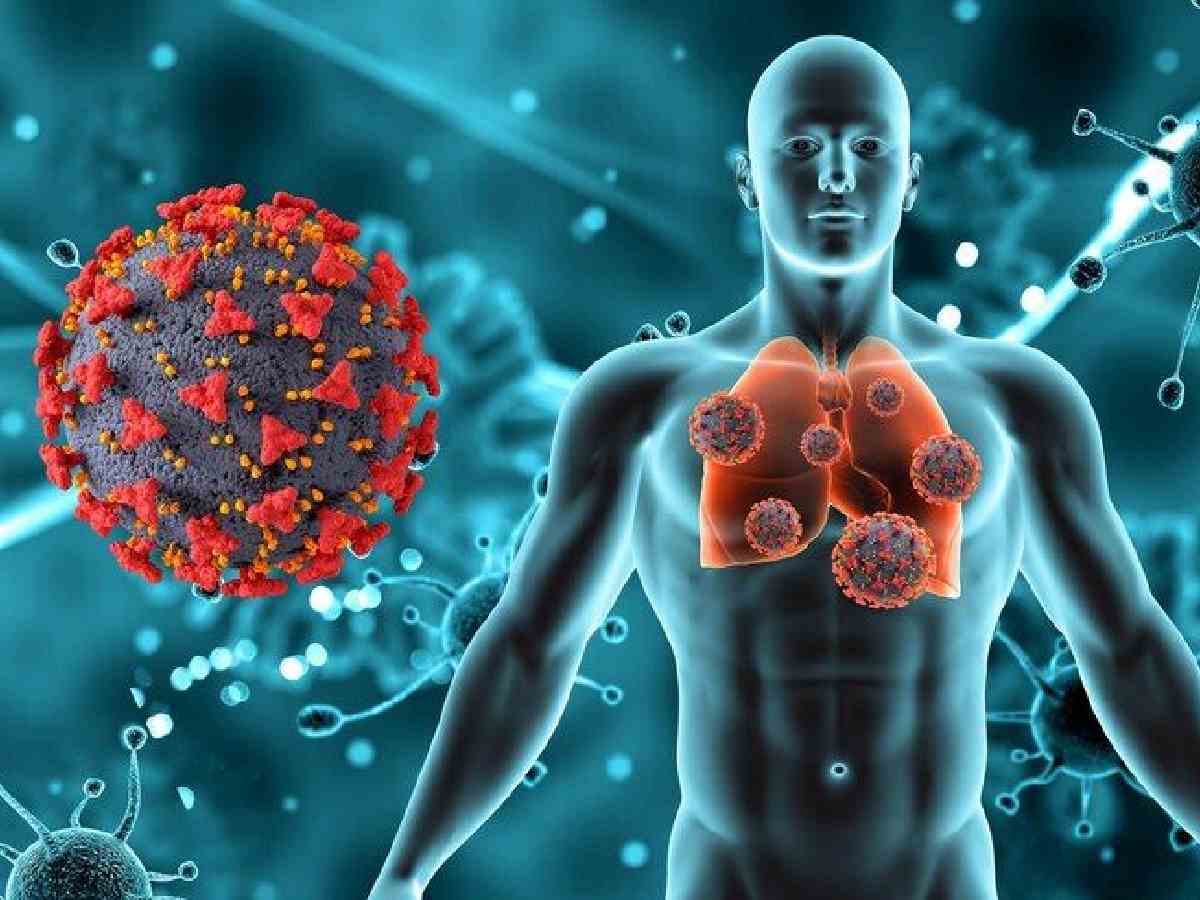
A persistent cough could be more than just a minor nuisance—it might be a warning sign of something far more dangerous, like lung cancer. As the leading cause of cancer-related deaths globally, lung cancer claims approximately 1.6 million lives every year, making early detection crucial for survival. In India alone, lung cancer accounts for 5.9% of total cancer cases and 8.1% of cancer-related deaths, posing a serious public health challenge.
Lung cancer is classified into two main types: non-small cell lung carcinoma (NSCLC) and small cell lung carcinoma (SCLC). NSCLC is more common and slower-growing than SCLC. Talking to Patriot, Dr Bhavna Bansal, Senior Consultant and Head Of Department, Histopathology at Oncquest Laboratories, highlights the key symptoms and risks of lung cancer, urging people to recognise the signs early for timely intervention.
Persistent cough that worsens over time? It could be a warning sign of lung cancer
The cough that doesn’t improve or gets worse with time can serve as an alarm bell. It could be chronic, dry, or productive with varying colours and consistencies of sputum. Get evaluated by a physician if you’ve had the cough for a long time, even after treatment.
Coughing up blood or rust-coloured sputum? Seek immediate medical attention
Expectorating blood or rust-coloured sputum (haemoptysis) may signal cancerous cells in your lungs. Rust-coloured sputum may imply internal bleeding or a tumour growing within the body. Any occurrence should be assessed by a healthcare professional immediately.
Also read: Delhi markets struggle with poor sanitation as authorities fail to act
Sharp chest pain worsening with breathing or sneezing? It could indicate lung cancer
Lung cancer can cause sharp, stabbing chest pain that worsens with deep breaths, sneezing, or laughing. This pain may arise from tumours pressing on the chest wall. Consult your doctor if you’re experiencing severe, well-defined chest pain.
Other symptoms: Weight loss, fatigue, and persistent cough
Apart from the mentioned signs, there are other manifestations of lung cancer. These include sudden unexplained weight loss, loss of appetite, a cough that persists for weeks (or shorter), shortness of breath or fatigue that doesn’t go away, or recurrent infections like bronchitis or pneumonia. The general state of health remains poor as the body struggles to fight the illness.
Key risk factors for lung cancer: Smoking, genetics, and environmental exposures
Several factors increase the chances of developing lung cancer. The most crucial among these is smoking, which accounts for most cases of lung cancer. Second-hand smoke, asbestos, radon gas, and environmental contaminants also contribute to the overall risk. A family history of lung cancer and specific genetic changes may increase susceptibility.
How regular screenings can save lives from lung cancer
Early detection of lung cancer dramatically improves the chances of successful treatment. Regular screenings can help detect cancer at an early stage, especially in those at high risk. Low-dose CT scans are a common screening method and are effective in reducing lung cancer mortality by identifying tumours before they become symptomatic.
Also read: Workplace toxicity: Young professionals reflect on work-life balance amid hustle culture
Understanding tests and treatment options
When lung cancer is suspected, several diagnostic tests are performed to confirm the presence of cancer and determine its stage. These tests may include imaging scans like X-rays, CT scans, and PET scans, as well as biopsy procedures to examine tissue samples. Once diagnosed, the treatment plan depends on the stage and type of lung cancer.
Treatment options for lung cancer include surgery, radiation therapy, chemotherapy, targeted therapy, and immunotherapy. Surgery is often considered for early-stage lung cancer, where the tumour can be removed. Radiation and chemotherapy are standard treatments for more advanced stages, aiming to shrink tumours and eliminate cancer cells. Targeted therapies and immunotherapies are newer treatments that specifically attack cancer cells or boost the body’s immune response against cancer.
Recognising signs of lung cancer: Importance of early detection and treatment
A persistent cough that doesn’t go away or worsens, coughing up blood, and chest pain are key signs of lung cancer. Awareness and early detection are vital for improving survival rates. Regular screenings, especially for high-risk individuals, are crucial for early detection. Understanding symptoms and risk factors is essential for timely medical intervention, with personalised treatment plans offering effective options.
Delhi hosted what organisers describe as the world’s first player auction in golf, launching ‘72…
An elderly woman recalls how her six-year-old granddaughter lay bleeding after a speeding car hit…
Municipal Corporation of Delhi plans a unified policy enabling RWAs to adopt and maintain parks…
A 17-year-old boy allegedly died by suicide after jumping before a moving train at Uttam…
Delhi High Court grants bail to 26-year-old Thar driver accused of mowing down two in…
Two Rohini men arrested for fatally stabbing one person and injuring another during a robbery…